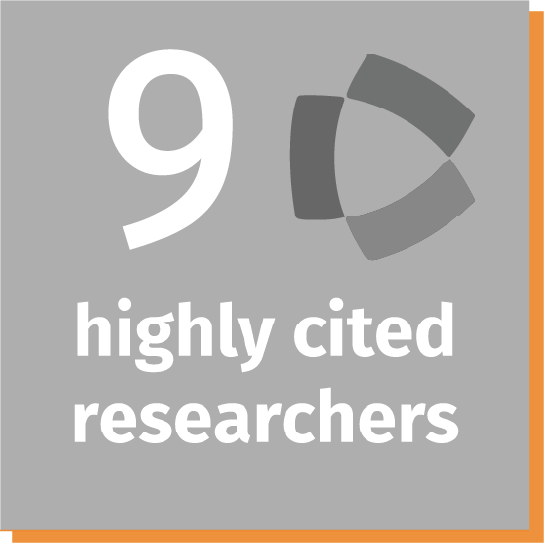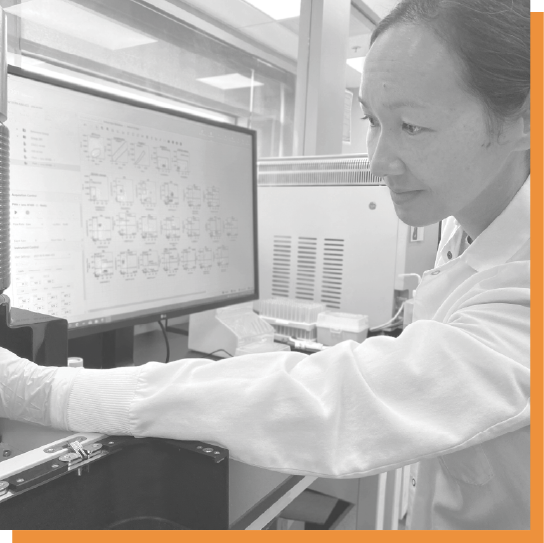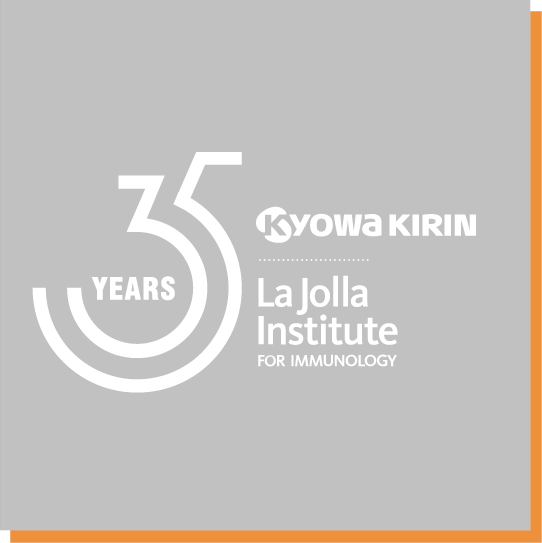Wishing you fresh inspiration in the new year
Working toward pandemic preparedness with national funding
Infectious disease leading expert, LJI Professor Sujan Shresta, Ph.D., has received more than $2.4 million from the National Institute of Allergy and Infectious Diseases (NIAID) to help develop vaccines against viruses with pandemic potential. “This work is an important part of LJI’s mission of pandemic preparedness,” says Shresta. “Both flaviviruses and alphaviruses cause numerous human diseases of global concern—and can cause explosive outbreaks with pandemic potential. If we can pair the most promising vaccine candidates with the optimal vaccine platforms, we’ll have the pieces in place to rapidly combat future outbreaks, epidemics, and pandemics,” says Shresta.
The Curci Ph.D. Fellows Award
Infectious disease researcher Onyeka Chukwudozie, a Graduate Student at UC San Diego and member of the Saphire Lab at LJI received a prestigious Curci Ph.D. Fellows Award from the Shurl and Kay Curci Foundation. The two-year fellowship supports Chukwudozie’s research into how human antibodies target and neutralize Lassa virus—a disease which has a high mortality rate specifically in pregnant women and can cause deafness. “Current experimental vaccines don’t offer the same protection against all [subtypes],” says Chukwudozie. “To design better vaccines, we need more information on how immune cells respond to these different [subtypes].”
LJI scientists secure another seat among highly cited researchers
In terms of global impact, LJI researchers’ contributions continue to stand out: This year, nine LJI researchers were named to the Highly Cited List—that’s one third of LJI faculty. The list, released each year by Clarivate, honors scientists who have ranked in the top 1% of citations for their field of study spanning the last decade. Yet, despite the intense pressure that comes with shaping the forefront of biomedical research, the Institute has maintained its famously collegial spirit. LJI regularly ranks among the top finalists in local “Best Places to Work” surveys.
New methods to hunt down tumors
When LJI Associate Professor Ferhat Ay, Ph.D., and LJI Professor Anjana Rao, Ph.D., started training new neural networks, a new computational method emerged, providing an important step toward harnessing machine learning approaches to better understand links between gene expression and disease development. Ay and Rao’s research aims to pinpoint regions of the genome that contain molecular enhancers, or “switches,” which fine tune the levels of gene expression and determine when and where genes will be on or off. “This research is about bringing a three-dimensional perspective to studying DNA modifications and their function in our genome,” says Dr. Ay. Ultimately, the new method will help scientists better diagnose disease.
The first of its kind
For the first time ever, LJI researchers captured the earliest look at how immune cells residing in the nasal passages work alongside immune cells that circulate in the bloodstream. In the landmark study, first author LJI Instructor Sydney Ramirez, M.D., Ph.D., and senior author LJI Professor and Chief Scientific Officer Shane Crotty, Ph.D., published the first of its kind, in-depth analysis of immune cell memory in the upper airways of adult volunteers. The scientists say these findings may lead to better vaccines to boost immune protection. “This discovery helps us understand immunity to pathogens and will hopefully help us develop new vaccines against viruses that infect the airway,” Crotty says.
An MD's perspective in infectious disease research
Instructor Sydney Ramirez, MD, Ph.D., won the Burroughs Wellcome Fund Career Award for Medical Scientists. The award recognizes Ramirez’s leadership and critical research toward addressing how the human immune system and cells in the upper airway respond to SARS-CoV-2, the virus that causes COVID-19. “Very few people—and very few clinician scientists—get this award,” says LJI Professor and Chief Scientific Officer Shane Crotty, Ph.D. “This award really speaks to how important Sydney’s research has been and the promise for her career going forward.”
The longest-standing industry-academic collaboration in the world
LJI and Kyowa Kirin mark yet another milestone in an extraordinarily successful and enduring research alliance by celebrating 35 years of partnership in 2024. The long-standing collaboration recognizes the importance of immunological interventions for the future of human health, and leverages the pharmaceutical company’s discovery and development capabilities and LJI’s expertise in discovery research to accelerate translation of research discoveries into potential new treatments. It has led to clinical trials for a number of conditions, including psoriasis, inflammatory bowel disease, and atopic dermatitis.
The new Reina Lab aims to charge up killer T cells against tumors
Cancer researcher Miguel Reina-Campos, Ph.D., has joined LJI’s faculty as an Assistant Professor to lead the Laboratory of Tissue Immune Networks. His lab focuses on specialized immune cells called tissue-resident T cells and the strategies that make them proficient at their jobs in hopes of bringing newer approaches to revamping immune responses against cancer, improving life-saving cancer immunotherapies. “What’s amazing about LJI is the density of immune-focused labs and the availability of resources,” adds Reina-Campos. “I’m excited to get started. There’s so much to be done.”
LJI launches “America’s SHIELD”
A $49M award from the U.S. Government’s Advanced Research Projects Agency for Health (ARPA-H) will allow LJI vaccine researchers to lead a national team to develop life-saving vaccines against a broad array of herpesviruses that infect the majority of Americans and can cause cancer, autoimmune disease, and birth defects. The project, led by LJI Professor, President & CEO Erica Ollmann Saphire, Ph.D., MBA, is called America’s SHIELD: Strategic Herpesvirus Immune Evasion and Latency Defense. America’s SHIELD will protect against herpesviruses such as Epstein-Barr virus and cytomegalovirus (CMV) that are major global health concerns. With the insights gained, the LJI-led team can deliver broadly applicable vaccines and assemble a computational “toolkit” to help fellow scientists target other viruses.
Our heartfelt thanks.
We want to thank you for taking the time to support our research, engaging with the scientific community, and your interest in advancing human health.
Happy New Year!








